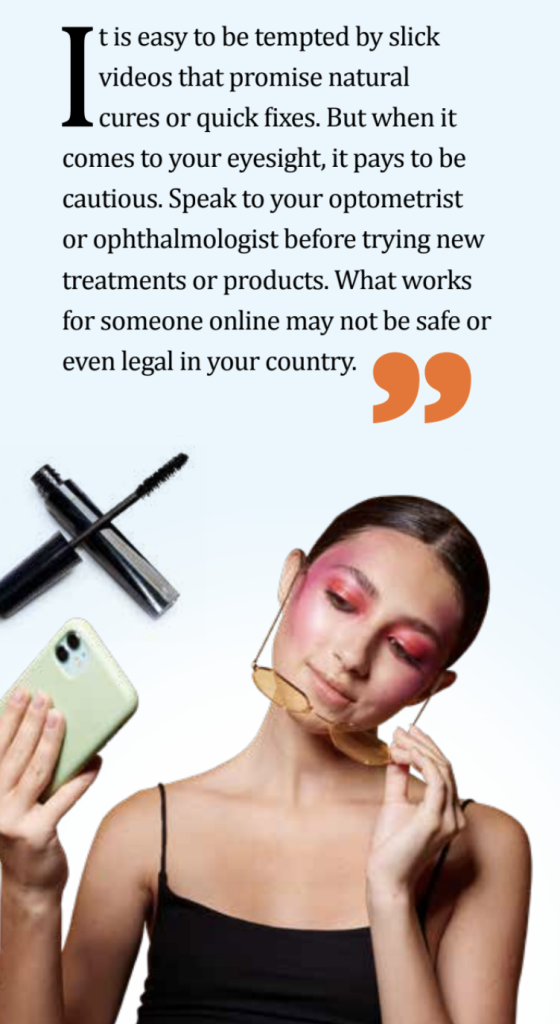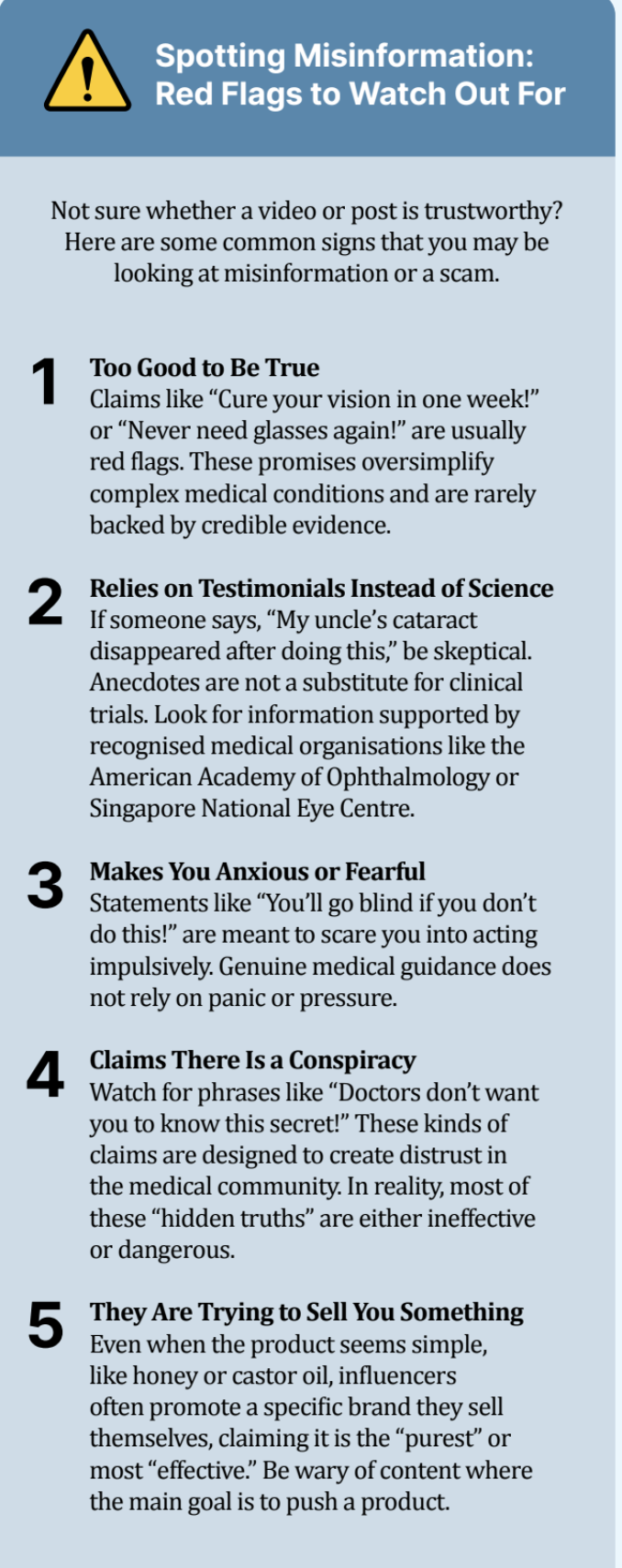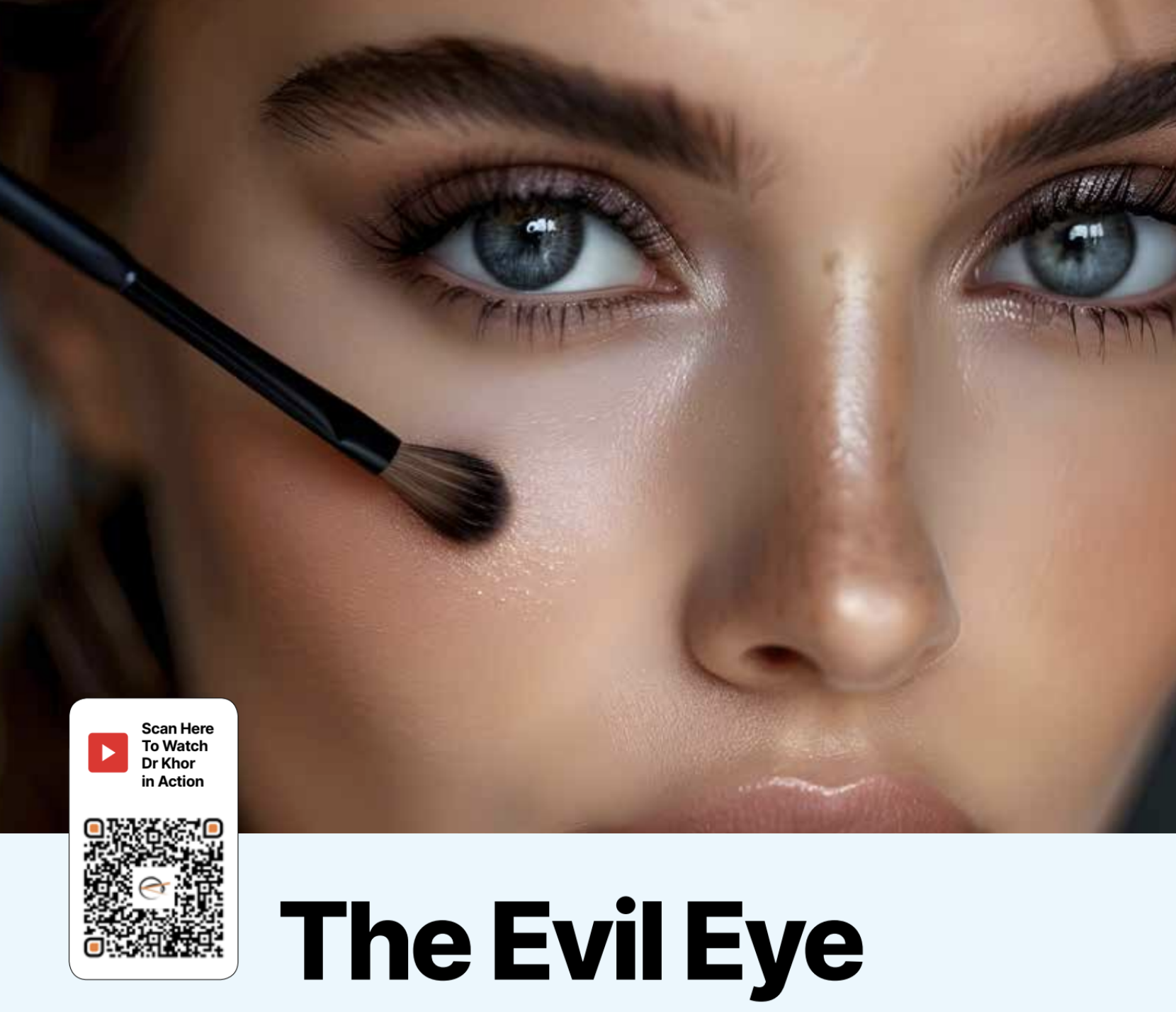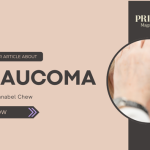Social media apps like TikTok and Instagram are now brimming with advice on health, beauty and so-called “eye care hacks.” At first glance, these videos appear harmless and may even seem to be helpful. But as an ophthalmologist with two decades of clinical experience, I have noticed a disturbing trend – people, both young and old, are following online advice that may actually be putting their eyesight at serious risk.
Now, these viral videos do often look convincing and are delivered with much confidence. But many are based on misinformation, unsupported claims, or worse, are deliberate scams. Some of the remedies they promote can even lead to infections, allergic reactions and permanent vision damage. Let us look at some recent online trends concerning the eye and what you should watch out for.
CASTOR OIL AND RAW HONEY: NATURAL DOES NOT MEAN SAFE
A growing number of social media posts promote products like castor oil or “Jimerito” honey (harvested from stingless bees) as natural cures for vision problems. Some claim that applying castor oil to the eyelids or flushing the eyes with diluted honey can improve sight. More concerning are videos showing influencers putting these substances directly into their eyes, often filming the pain and tearing that follow!
It is true that castor oil is used in some commercial eye drops for dry eye, but only in very low concentrations and as specially formulated, sterile solutions. Similarly, while laboratory studies have researched honey’s antimicrobial and anti-inflammatory properties, there is no scientific evidence to show that raw honey can improve your eyesight or prevent vision loss.
These substances do not penetrate the eye deeply enough to affect internal structures, much less cure cataracts or strengthen the optic nerve. Worse, applying unregulated products directly into the eye risks introducing bacteria, fungi or harmful contaminants that can lead to allergic reactions, infections or corneal damage. Even if complications do not occur immediately, relying on such remedies may delay proper medical care. Time is critical in treating many eye conditions, and delays can make treatment and recovery more difficult.
MAKEUP HACKS: NOT ALWAYS A GREAT LOOK FOR YOUR EYES
Social media thrives on beauty tips, and many viral makeup tricks involve the eyes. These include using red lipstick under the eyes to hide dark circles, applying Vaseline near the lash line to prevent smudging, or “tightlining” eyeliner directly on the waterline.
While these techniques may create a striking look for the camera, they are not always safe for your eyes. The skin around the eyes is delicate, and using products in unintended ways can clog the oil glands along your eyelids. This can result in styes or chalazia, which are painful bumps on the eyelids that may require medical treatment. In addition, frequent exposure to certain cosmetic ingredients can worsen dry eye, cause redness, or trigger allergies.
To protect your vision:
- Choose makeup products that are specifically labeled as safe for use around the eyes.
- Avoid applying anything directly to the waterline.
- Thoroughly remove all eye makeup before sleeping.
COLOUR-CHANGING EYE DROPS AND SURGERIES: A RISKY IDEAL
Eye colour is determined by the amount of melanin in your iris and is largely set by genetics. For example, the dark eyes in Asians are due to the high concentration of melanin in our irises. Coloured contact lenses have long been used to temporarily change eye colour.
But now, social media is promoting more drastic measures, such as colour-changing eye drops and cosmetic iris implants. Videos claiming to show dramatic colour changes after using such drops are unrealistic and often digitally altered. Far from being safe, many of these products contain unregulated ingredients not meant for ocular use, and may cause inflammation, allergic reactions and infections.
Even more dangerous are iris implant surgeries, which involve placing an artificial coloured lens in front of your natural iris. These procedures are marketed in some countries for cosmetic purposes, but they carry significant risks. Reported complications include glaucoma (increased pressure inside the eye), cataract formation, chronic inflammation and even blindness. Because of these dangers, cosmetic iris implants are not approved in most countries, including the US, Singapore, and those in the European Union.
THE BATES METHOD: AN AGE-OLD TECHNIQUE THAT DOES NOT WORK

These treatments were controversial even in Dr Bates’ time, and since then, they have been thoroughly discredited by modern research. The key claim – that vision problems can be reversed by training the eye muscles – is not supported by science. Refractive errors like near-sightedness, farsightedness and astigmatism are caused by the shape of the eyeball or lens, not eye muscle weakness. There is no reliable evidence that the Bates Method can improve vision or reduce the need for glasses. In fact, avoiding proper correction based on these ideas can lead to eye strain, headaches and decreased quality of life. So, consult an eye care professional before trying any alternative methods that claim to “heal” your eyes naturally.
DO NOT BELIEVE EVERYTHING YOU SEE ONLINE
It is easy to be tempted by slick videos that promise natural cures or quick fixes. But when it comes to your eyesight, it pays to be cautious. Speak to your optometrist or ophthalmologist before trying new treatments or products. What works for someone online may not be safe or even legal in your country. Trends come and go, but your vision needs to last a lifetime! PRIME

Spotting Misinformation: Red Flags to Watch Out For













Leave A Comment